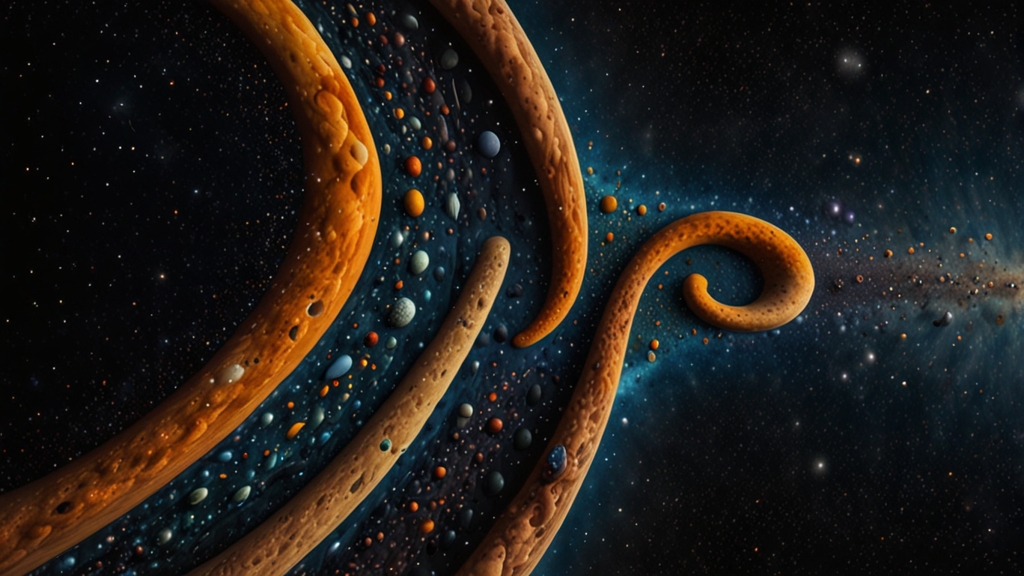The Creation Story Debate: Faith, Science, and Everything In Between
The origin of the universe and life itself has long been a subject of profound curiosity and intense debate. This discourse often finds itself at the intersection of faith, science, and philosophical inquiry. While religious narratives like the Biblical creation story provide a perspective grounded in divine intervention, scientific theories such as the Big Bang and evolution offer explanations based on empirical evidence. Between these two seemingly divergent viewpoints lies a rich tapestry of thought and belief systems that attempt to bridge the gap.
Faith: The Religious Perspective
Religious creation stories are as varied as the cultures from which they originate. The Judeo-Christian tradition, for instance, attributes the creation of the universe to a divine act by God. According to the Book of Genesis, God created the world in six days and rested on the seventh. This narrative is not merely an account of events but forms the bedrock of theological doctrines about humanity's purpose and relationship with the divine.
"In the beginning God created the heavens and the earth. Now the earth was formless and empty, darkness was over the surface of the deep, and the Spirit of God was hovering over the waters." - Genesis 1:1-2
Other religious traditions have their own creation stories, each reflecting unique cosmological views. Hinduism's sacred texts, for example, describe a cyclical process of creation and destruction, rooted in the divine activities of deities like Brahma, Vishnu, and Shiva. Indigenous cultures often intertwine natural elements with spiritual beliefs, portraying creation as a more holistic and interconnected process.
Science: The Empirical Evidence
On the scientific front, the Big Bang Theory is the most widely accepted model for the origin of the universe. According to this theory, the universe began as a singularity approximately 13.8 billion years ago and has been expanding ever since. Complementing this cosmological explanation is Charles Darwin's theory of evolution, which provides a framework for understanding the development of life on Earth through natural selection.
These scientific theories are grounded in observational and experimental evidence. The Cosmic Microwave Background Radiation provides a snapshot of the early universe, while fossil records and genetic studies offer robust support for the process of evolution. Despite the evidence, the scientific narrative is frequently met with skepticism from religious communities, primarily because it offers an impersonal and mechanistic view of existence.
The Middle Ground: Can They Coexist?
While some perceive an irreconcilable conflict between faith and science, others seek common ground. Theistic evolution, for instance, posits that divine intervention guided the process of evolution. This perspective allows for the acceptance of scientific theories while maintaining a belief in a purposeful creator. Notable religious figures and scholars, including Pope Francis, have expressed support for such a synthesis:
"The Big Bang, which today we hold to be the origin of the world, does not contradict the intervention of a divine Creator, but rather requires it. Evolution in nature does not conflict with the notion of Creation, because evolution presupposes the creation of beings that evolve." - Pope Francis
Moreover, the dialogue between science and religion is not limited to mere coexistence. Some argue that both domains address fundamentally different questions. Science seeks to explain the "how" of natural phenomena, while religion addresses the "why" of existence and moral purpose. Through this lens, faith and science are seen as complementary rather than contradictory.
The Ongoing Debate: Respect and Understanding
The creation story debate is far from resolved and continues to evoke passionate discussion across various platforms, from academic journals to social media. What is essential, however, is fostering a respectful dialogue that considers the value of diverse perspectives. The quest for understanding our origins and purpose is a shared human endeavor, transcending the boundaries of individual belief systems.
Whether one leans towards a faith-based interpretation, a scientific explanation, or an integrative approach, it is crucial to recognize the profound questions at the heart of the debate. By doing so, we not only enrich our own understanding but also contribute to a more inclusive and enlightened discourse.









